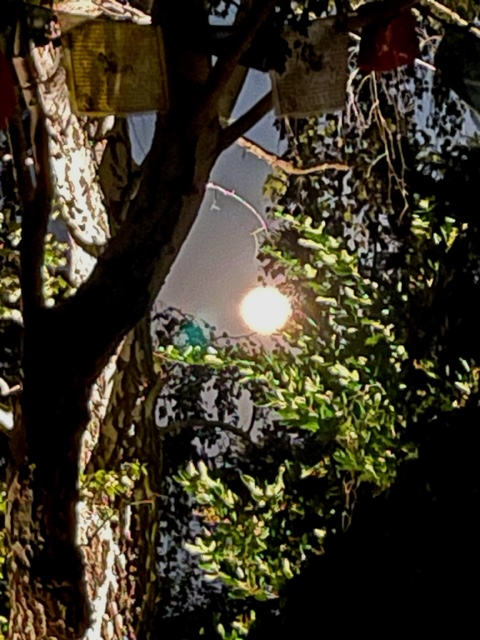September 2023
By Richard Fleming

Photo courtesy of Alexei Maridashvili
Sociologists say society today is comprised of seven distinct generations. Each has its own characteristics, culture, idioms, and values. While these features do not precisely define each individual, they can be broadly useful identifiers, attributable to the political, economic, and cultural milieu in which each generation grows up.
I am an aging Baby Boomer. With the passage of time, I’ve become increasingly aware how each generation tends to disregard the accomplishments of other generations. Especially those who are older.
There are two living generations older than the Boomers: the Silent Generation and the Greatest Generation. I readily acknowledge that for much of my life I underestimated the contributions these older generations made to my life and to Boomers overall. When I was in my teens and 20s, I tended to dismiss the older generations as out-of-touch fuddy-duddies. I thought I knew better and was more worldly-wise than my elders.
As my maturity level increased, I gradually became less dismissive of older folks. But I still did not accord them much respect. I failed to truly acknowledge the two generations senior to mine had blazed many trails. I did not recognize they had mapped much of the terrain that Boomers – now finding ourselves to be old – are traversing.
* * *
Today we Baby Boomers are by far the largest group of oldsters in the country. There are 70 million of us, ages 59 to 77. Prior to us is the Silent Generation, made up of 19 million people, ages 78 to 95. And before them is the Greatest Generation, still numbering about 165,000 folks ages 96 and above.
The Silent Generation moved through life as one of the smallest generations. They grew up in the midst of the Great Depression of the 1930s and during World War II. During those years people had fewer children because of economic uncertainty and massive global conflict. The Silent Generation tended to be reserved, conforming, and cautious, though also committed to improving life for others. Many of the leaders of the Civil Rights Movement of the 1960s came from the Silent Generation, including the Rev. Martin Luther King, Jr., Jesse Jackson, Claudette Colvin, Ralph Abernathy, Diane Nash, and others. Important areas of our society’s ongoing quest for equality were nurtured and developed by the Silents. And I would be remiss if I didn’t note the Silent Generation gave birth to rock and roll.
The Greatest Generation is rapidly diminishing in numbers, but it is safe to say that without their heroism, the world would be very different today. This generation was very hard working, motivated, and self-sacrificing. They struggled to help the country emerge from the Great Depression. They were part of the enormous transformation of the country’s economy from being principally rural and agricultural to one including manufacturing. And, critically important for the entire world, they waged a Herculean struggle to defeat fascism, sacrificing millions of lives.
For Boomers, our lives would be far different were it not for the achievements of these prior generations. Our world would be unrecognizable.
As I move further into old age, I feel a greater need to recognize the debt we owe our predecessors.
* * *
My parents were both from the Greatest Generation. Fortunately, I was able to thank my mother and father before they passed. I expressed my gratitude to them for instilling good values and raising me well. But as I think back from my current vantage point, I feel my appreciation was insufficient. I’m sure my parents valued my thanks, but I should have said more. I should have acknowledged more.
And I should have asked more questions. There are so many things I would love to know about their childhoods and their young adult years. Why and how did they become the people they were? What was it like for them and their communities, traversing the Depression and World War II? How did they become the parents they were? If I had had deeper conversations with them, I would have gained a richer understanding of how they shaped my life, and how their generation shaped my generation. This deeper understanding would have made my thanks more significant.
I know it is important to avoid dwelling on the past. But gaps in communication with parents can never be filled in after they die. I hope this is a lesson younger generations take to heart.
Though the hour is late and the horizon growing closer, there is still time for us Boomers to communicate with members of the two preceding generations. Doing so may help us embrace our elders’ wisdom and legacy, and help us achieve a greater measure of composure as we follow in their footsteps.
* * *
If you enjoyed this post, please consider subscribing to be notified of future posts. Subscriptions are free.

